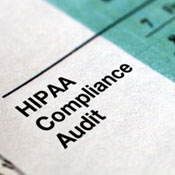 By: Jackie Bain
By: Jackie Bain
Section 13411 of the HITECH Act authorizes and requires the Department of Health & Human Services Office for Civil Rights (“OCR”) to provide for periodic audits to ensure that covered entities and business associates comply with the HIPAA Privacy and Security Rules. OCR conducted its first round of those audits in 2011 and 2012, and has announced that it will begin a second phase. Unlike the first phase of audits, which were limited to covered entities, both covered entities and business associates are intended to be audited during this second phase.
How will audited businesses be selected?
This fall, OCR will deliver pre-audit surveys to between 550 and 800 covered entities. OCR is attempting to obtain a fair snapshot of all covered entities, so these pre-audit surveys will be sent to health care providers, health plans, and health clearinghouses. Moreover, the audits will span the gamut of business sizes, from large corporations to solo practitioners. After pre-audit surveys are returned, OCR will randomly select 350 of those covered entities for a full audit. As a part of these full audits, covered entities will be asked to identify their business associates. OCR will then select 50 business associates to participate.Continue reading

